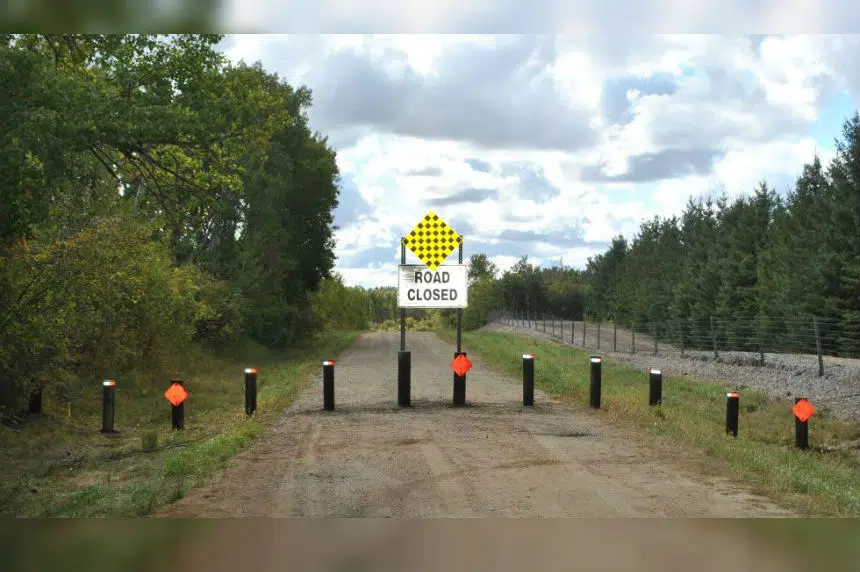Reeve Don Fyrk said the section of Peter Pond Rd. which connects the North Sask. River to the well-travelled C.L. Marshall Rd. had become a hot-spot for crime in recent years. Needles, condoms and other litter were scattered about, he said, and the area was commonly used as a temporary hideout by prostitutes and thieves. Once, he said, a car went into the river at the site after a speeding driver failed to realize the road led to a dead end at the riverbank.
“They would go and steal and then they would go down there and divvy up the loot,” Fyrk said. “We had people even threatening to move from that area if something wasn’t done.”
Fyrk said the road was closed to vehicular traffic last week, and vehicle-blocker posts were installed at the site. The river is still accessible by foot traffic, he said, and canoeists and kayakers only have to carry their vessels a short distance in order to launch from the site. One of the landowners whose property borders the road has given emergency services permission and gate keys to let them cut across his land at that location, Fyrk said, so the road closure does not present a safety risk.
Almost immediately after the road was closed, the reeve said residents began reporting a positive change in the area.
“The traffic has died down in half. You don’t get all these shady characters driving around there anymore,” Fyrk said. “There’s no needles anymore, there’s no condoms, there’s no garbage.”
Fyrk said some residents were initially upset when they learned the R.M. had closed the road, but once he explained the facts to them, Fyrk said they quickly became supportive. The reeve said he would encourage other municipal governments to take similar actions if their residents complain about a specific area becoming hot-spots for criminals.
“This is one small step in preventing crime,” Fyrk said.
One R.M. resident, whose home is located roughly one kilometre from the newly-closed road, said the reductions in petty crime and suspicious traffic are already visible throughout the entire neighbourhood.
“The R.M. made a really wise choice,” she said. “I think that was one of the best things they ever did, was close that road.”
The woman, who spoke anonymously because her job requires interaction with criminals, said she stopped taking walks down the road before it was closed because she would regularly recognize known offenders in the area. She encouraged other municipalities to work proactively to shut down similar areas, as her own neighbourhood already feels significantly safer.
“It helps with all of our properties,” she said. “You can already feel the difference.”











